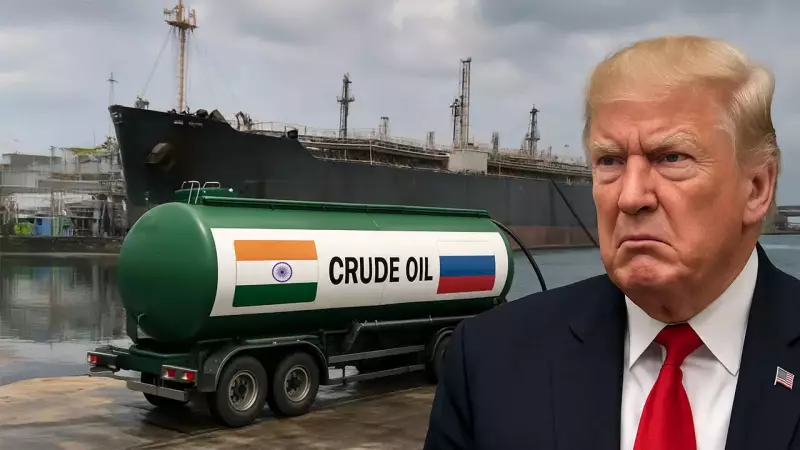
The global energy landscape is bracing for potential turbulence as former President Donald Trump's proposed sanctions against Russia threaten to disrupt established oil trade routes. While short-term market disruptions appear inevitable, energy experts suggest a complete halt in Russian oil purchases by economic powerhouses India and China remains highly improbable.
The Geopolitical Tightrope: Balancing Economics & Diplomacy
India and China, both massive consumers of crude oil, have developed sophisticated mechanisms to navigate Western sanctions while securing their energy needs. "Both nations have perfected the art of balancing geopolitical pressures with economic necessities," explains Dr. Priya Sharma, Energy Analyst at Delhi Policy Institute. "Their refineries are calibrated for Russian crude, and the discounted prices offer significant economic advantages that are hard to abandon."
Why Complete Disengagement Remains Unlikely
- Economic Pragmatism Over Political Alignment: The substantial discounts on Russian crude—often $15-20 per barrel cheaper than alternatives—provide compelling economic incentives that outweigh political considerations for both nations.
- Established Payment Mechanisms: Both countries have developed robust alternative payment systems that circumvent traditional dollar-denominated transactions, including rupee-rouble arrangements and digital yuan settlements.
- Infrastructure Investments: Significant investments in port facilities, pipelines, and refineries optimized for Russian crude create structural dependencies that cannot be quickly reconfigured.
- Strategic Energy Security: Diversifying energy sources remains a cornerstone of both nations' national security strategies, with Russian imports providing crucial supply stability.
Market Realities vs Political Rhetoric
Despite potential sanctions, market fundamentals suggest continued, though possibly restructured, Russian oil flows to Asia. "The global oil market operates on practical economics rather than political idealism," notes Rajiv Mehta, Commodities Strategist at Mumbai Financial Services. "Even with sanctions, we'll likely see creative solutions emerge—shadow fleets, blended cargoes, and third-country processing will maintain the flow, albeit at potentially reduced volumes."
The coming months will test the resilience of global energy networks and the diplomatic balancing acts of major emerging economies. While political pressures may force some adjustments to trade patterns, the fundamental economic logic driving India and China's energy partnerships with Russia appears too strong to break completely.





